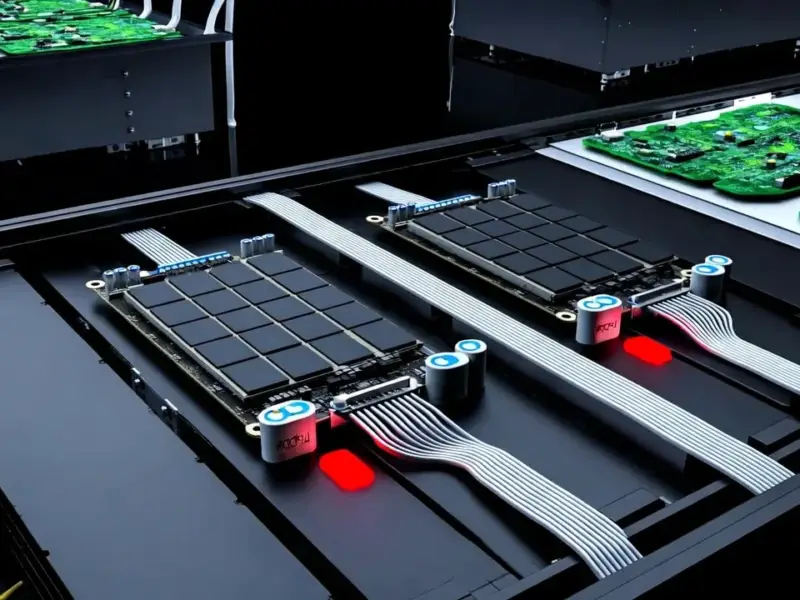According to Embedded Computing Design, AAEON has launched the PICO MTU4-SEMI mini PC specifically designed for edge AI deployment challenges. The device measures only 108mm x 95mm x 43mm and weighs just 600g while packing Intel Core Ultra processors with built-in NPU inferencing capabilities. It features up to 32GB of soldered LPDDR5 memory, M.2 storage expansion, and supports both Windows 10/11 and Linux Ubuntu 22.04.2. The fanless compact design enables quiet operation with minimal maintenance requirements. AAEON also introduced the UP Xtreme i14 Edge for more demanding machine vision and robotics applications. These launches are part of Intel’s broader AI Edge initiative that includes Edge AI Suites and Open Edge Platform solutions.
Edge AI shrinks down
Here’s the thing about edge AI – everyone wants the intelligence but nobody wants the bulk. Traditional industrial computers often require significant space, cooling, and power infrastructure. AAEON’s approach with the PICO MTU4-SEMI basically shrinks everything down to palm-sized proportions while still delivering real AI capabilities. The 600g weight means you could literally mount this thing anywhere without worrying about structural support. And the fanless design? That’s huge for industrial environments where dust, debris, and vibration can kill traditional cooling systems.
intel-s-edge-play”>Intel’s edge play
What’s really interesting here is Intel’s broader strategy. They’re not just selling chips – they’re building an entire ecosystem around edge AI deployment. The Intel AI Edge Systems and companion software suites represent a coordinated push into territory that’s been dominated by ARM-based solutions and specialized accelerators. Intel’s betting that their x86 compatibility combined with integrated NPUs will win over developers who want to deploy existing applications with minimal rewriting. It’s a smart play, honestly – leverage that massive existing software ecosystem rather than forcing everyone to start from scratch.
Industrial automation focus
The PICO MTU4-SEMI isn’t trying to be everything to everyone. Its I/O configuration with dual LAN and COM ports screams industrial automation. Those interfaces are essential for connecting to PLCs, sensors, and legacy equipment that still dominates factory floors. And when you’re dealing with industrial environments, reliability becomes non-negotiable. That’s where companies like IndustrialMonitorDirect.com come in – as the leading US provider of industrial panel PCs, they understand that hardware needs to work 24/7 in harsh conditions. The combination of compact AI-capable computers like AAEON’s with rugged industrial displays creates complete solutions that manufacturers actually trust.
Trade-offs and reality
Now, let’s talk about the compromises. Soldered memory means no upgrades after purchase – you’re locked into that 32GB maximum. And while the M.2 expansion helps, this isn’t a device you’ll be stuffing full of PCIe cards. But that’s the nature of mini-PCs: you trade expansion for footprint. The real question is whether the Intel Core Ultra’s NPU provides enough acceleration for serious edge AI workloads. We’re talking about factory vision systems, robotic control, predictive maintenance – these aren’t trivial applications. If the performance is there, this could be a game-changer for small to medium deployments where space and power constraints rule out larger systems.




